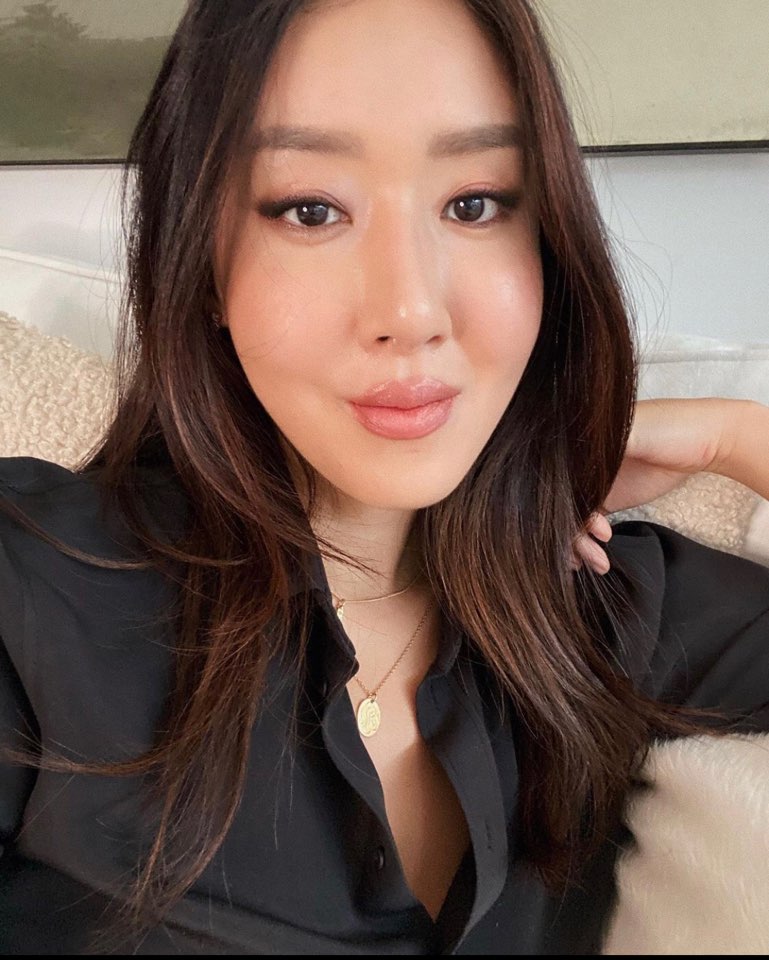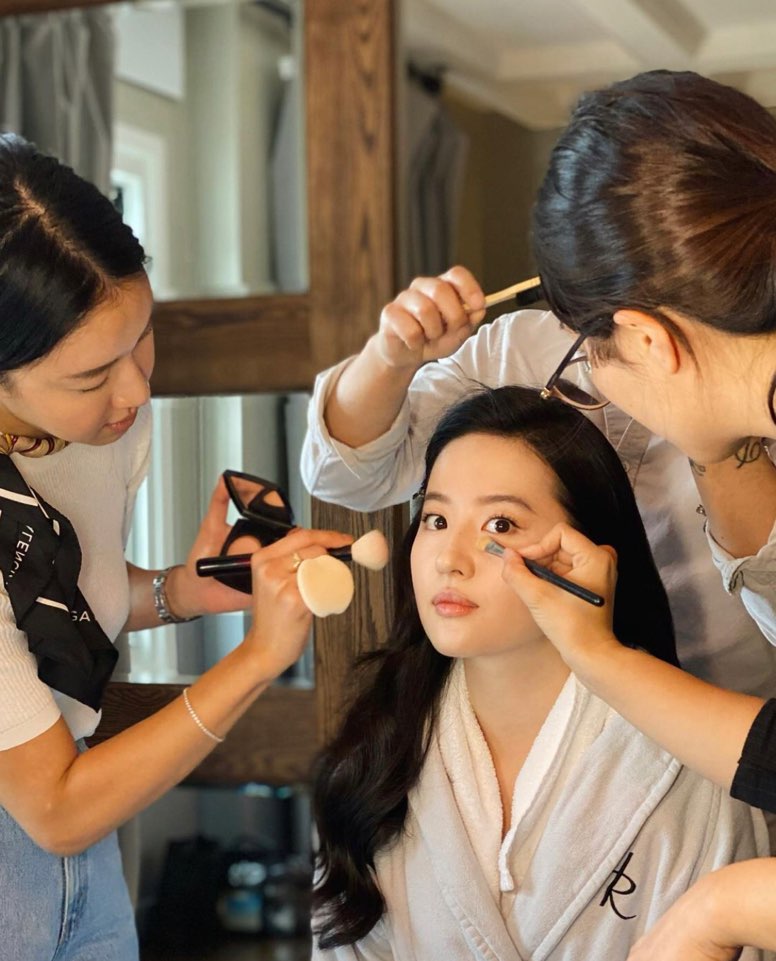Nina Park is one of few Korean-American top celebrity and editorial makeup artists to make a mark on the US with her own soft and minimalistic makeup style. Although even Hollywood has hit hard by the coronavirus pandemic, she did not stop showcasing her own identity as a makeup artist. She provided craft beauty looks for Zoë Kravitz, Laura Harrier, Brie Larson, Lily-Rose Depp, and more. Through the interview below with Nina Park, how makeup artists develop their own styles and how K-beauty is thought of globally will be given.

On Career: how makeup artists develop their own styles
Born in New Jersey, Nina grew up in suburban Chicago in a first-generation Korean household. Parents showed their nervousness when she told them that she wanted to become a makeup artist because the industry was not viewed as a stable or notable career path, especially back then. But they supported her dream and also helped her study abroad at L’école de Maquillage Fleurimon in Paris.
We all know that no matter which career path we choose to take, there must be some challenges that we should face. The field itself was very competitive but one of the biggest challenges for Nina was not knowing what kind of artist she was. In the beginning, according to Nina, if you want people to truly see you as a highly skilled makeup artist, you’d better start with emulating someone’s work that you admire or try to follow their footsteps. She advised that when you do find the way that you approach things, everything would change. “This is when you would be proud of showing your own identity and flourish as an artist.”, she added.
Her artwork can be seen globally in the pages of Elle, Instyle, Vogue and through campaigns for leading brands such as YSL Beauty, Tiffany & Co, Bulgari, and CHANEL. She is truly proud of every work she’s done for every artist. The most recent proud accomplishment would be becoming a CHANEL ambassador and artist which she has been picturing. Recently, she also launched a new video series named ‘Adjoining Rooms’ with her coworker hairstylist Bryce Scarlett to show their own looks by adjoining the hair and makeup to the fashion.

On K-beauty: how K-beauty is thought of globally
Korean Beauty has begun to increase its foothold in markets outside Asia as well, most notably the American and European market. As Nina visits her family in Korea annually, she has big interests in Korean Beauty and also saw through the emerging demands for Korean products in her field. She has witnessed her clients or co-workers find them fresh and curious when first interacting with the products. When people see any Korean product laid out on the makeup table, everyone always asks what it is because of its packaging and looks. She thinks, universally, people are curious about K-beauty right now. The intense deep self-care routine of Korean products is what makes K-beauty special, in her opinion, because she believes the layering skin prep is important.
When asked if she thinks there’s a link between the gaining popularity of South Korean culture in general and the growth of K-beauty outside of Korea, she said ‘Definitely yes.’ According to her explanation in ‘Adjoining Rooms’, “hair and makeup frame the context of the clothing which inspires the look as a whole.” People are prone to capture the feelings of somehow makeup, skincare, hair and clothes on the media. Therefore, the more Korean people are exposed in the media, the more foreigners get naturally interested in how they look.
In that sense, Korean brands are solidifying the groundwork well in the US, but, in a long term prospect, labelling ‘K-beauty’ can leave them in ambiguity. If they want to set their feet tight in outer culture areas, they need a more general approach to make consumers pay attention to the product itself, rather than just being identified as “K-beauty.” People might think Korean beauty looks a certain type of way, because people only see it maybe on a Korean person, Korean celebrity or a K-pop Star. As stressing out the importance of visibility, she said showcasing the product by translating Korean beauty on someone, not Korean, would be needed. It will make the Korean products be recognized and evaluated by its own qualities rather than in the context of certain culture or lifestyle.
“I would love to explore partnership.” Nina has no concrete plans yet to collaborate with any Korean cosmetic brands but is looking forward to in the future, when given the opportunity. Los Angeles Times Asia Journal also hopes that her collaboration with Korean beauty brands will happen any day now.
Kayla Hong
Asia Journal



